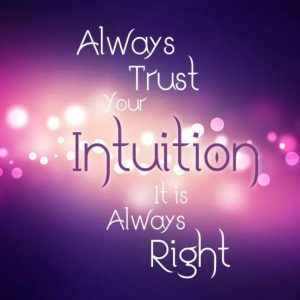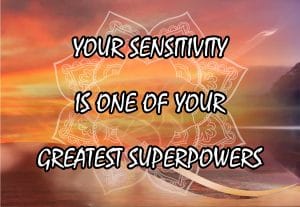Being Empathic and What it Means
Being Empathic and being sympathetic are actually two very different things. Empaths are born with the gift of being able to actually feel another person’s emotions. It is as if they step into that person’s shoes for a time and physically experience the thoughts, feelings, and emotions inside that person. Empaths are also very much in tune with the life of the planet, meaning that they can feel the suffering of animals, plants and the very Earth itself. They are very special people who often give their all in service to others, to the planet and to those who do not even know that they need healing. Empaths heal on a Soul level, which can sometimes be traumatic for them, yet they keep on giving because. For them, there is no other way to live.
Empathy cannot be learned, unlike the skills of Active Listening or Neuro-Linguistic Programming which form a part of many courses in counseling and similar professions. Empathy cannot be developed, like other forms of energy healing can be developed and practiced. Lightworkers and Angelic Healers use energy healing, as do Reiki practitioners, but they are able to “switch off” the energetic connection when necessary. Empaths cannot do this.
Sensitives or Highly Sensitive People (HSPs) come close to understanding the Empathic connection, but their experience is slightly different in that they are often very aware of the emotions and moods of people around them, but they do not necessarily feel these emotions in their own bodies. HSPs are often introverts, are troubled by highly stimulating environments and tend to seek peace and quiet for themselves in order to recharge their energy levels and stay well.
An Empath, on the other hand, is totally immersed in the emotions and troubles, the joy and the pain of the people or animals around them. This means that the gift of Empathy can be both a blessing and a curse. It is their ability to absorb another’s feelings that is their great strength. They make extraordinary caretakers, friends, healers, partners and co-workers, especially when others value and appreciate their gift.
Many people struggle to love themselves and tend to become harsh and unforgiving towards their own bodies and minds when they perceive themselves to be “lacking” or not good enough. Empaths intuitively pick up on this, if this is the case for the person they are helping, and have the unique ability to actually mirror this back to the affected person. Of course, the true benefit, or blessing, of this psychic or intuitive connection is that an Empath can give you a sense of self-love, and from that position, healing is possible. Some may even say inevitable.
What are the Main Characteristics of an Empath?

This is a fairly difficult question to answer because Empaths are a very diverse set of individuals. However, because all Empaths share the ability to directly experience the emotions and feelings of others, they do share some character traits.
Empaths are often very expressive with both words and body language. They tend to be very creative and are often found to be excellent teachers and carers. An Empath has no choice but to take on and directly experience moods and thoughts of others; they are without exception the Listeners of Life and will often attract a group of people to them without knowing why. They can be bombarded by other people’s troubles, and even complete strangers may find that they have poured out their deepest traumas or concerns to an Empath without consciously meaning to. Empaths listen with compassionate understanding and respond without prejudice or judgment. For this reason, it is important, if you know of or are close to an Empath, to find the time, in turn, to listen to them.
It can be overwhelming for an Empath who is not quite sure how to manage the intense flood of emotions they are constantly subjected to from those in their lives. It is important for an Empath to seek out like-minded and compassionate people with whom to share their own feelings. Otherwise, they run the risk of becoming ill, both mentally and physically, because of the swinging, ever-changing emotions that overtake them.
Empaths can be joyful, uplifting and uplifted, inspiring, and encouraging. In short, they are often a joy to be around. On the other hand, if they do not understand how to manage their moods and feelings, they can become introverted, quiet, unresponsive, and sometimes even arrogant or rude. They may bottle up or block out all feeling as a way of surviving.
Empaths are problem solvers, quick thinkers, and receptive students. They are creative and expressive, with a natural talent for music and art as a way of expressing themselves. They are often lucid or vivid dreamers and tend to “drift off” if a situation is becoming mundane or boring. They can tap into knowledge that is probably not accessible to the vast majority of us, although the chances are that they do not even realize they are doing this. To be an Empath is to experience, feel, and just simply know everything that is around them. As you can imagine, the gift of Empathy is often a double-edged sword.
Another character trait that seems to be particularly strong in Empaths is that of storytelling. They are naturally inquisitive and imaginative beings who are always increasing their knowledge, whether by design or through psychic intuition. They are the natural curators and historians of ancestral history and often very knowledgeable about their own family tree and ancestral roots.

Empaths as Healers
All Empaths are psychics. In fact, they are constantly in a state of psychic connection to All That Is. This allows them to be incredibly effective as healers as well as achieving remarkably fast results.
Most Empaths say that they feel their life purpose is to heal, help, support, and nurture. Many people who work as volunteers are Empaths, giving their time and service gladly for no financial reward to the people and places that need them.
In Traditional Chinese Medicine Empaths embody the Earth Element. The meridians associated with the Earth Element are those governing and supporting the stomach and spleen. The Earth element is aligned with the qualities of sympathy, empathy, boundaries, and nurturing. It also represents centeredness and our own sense of identity and how we see ourselves in the world. In the TCM governing cycle, it also represents containment, as Earth governs water by containing it with banks and boundaries.
When an Empath works to heal, they latch on to the feeling of grief, pain or sadness and step directly into it, forming an energetic link between Empath and the other person. Through this link, the Empath can channel warmth, safety and a nurturing, maternal form of healing energy. This has the effect of reducing the anxiety levels of the person with whom the Empath is working with, and the way is then clear for the Empath to begin to absorb some of the anxiety and other harmful emotions into themselves.
This is where the Earth’s quality of containment comes in. The Empath is able to ground and contain negative or harmful energies and then offer the energy back to their client/friend a little at a time. The gauging of the amount of energy a person is able to reabsorb happens on a purely psychic level. The energy is grounded and cleared intuitively in this way. The process can be draining for the Empath, but it does happen spontaneously and effortlessly. Maintaining the link can be very depleting of the Empath’s energy as it is an intense psychic link between two people, one of whom is suffering a soul trauma.
The Need for Self-Care
The difference between HSPs and Empaths is probably most noticeable in the area of self-care.
Empaths, above all, need to be aware of their own needs and to take care of themselves both mentally and physically. They walk a path of service to humanity and to the planet, and they feel the energies of all living things to the extent that most of us cannot fathom. Being in the company of other Empaths is vital for their psychic and spiritual health. They need to find and develop ways to rest psychically as they do not “tune in” and then tune out again. They are constantly linked to the life around them and need to find their own best ways to manage this. There is a world of difference between being selfish and being self-full. Empaths are aware of the need to nurture themselves in a self-full way, not least because they know that only when they are healthy can they be of optimum service to others. Their love and compassion for others must also be directed towards themselves.
Relaxation and stress reduction techniques such as receiving regular Reiki or other energy healing and chakra balancing therapies, engaging in exercise that is nourishing to the body and soul, forest bathing and walking barefoot on the earth are all excellent ways for an Empath to look after themselves. They should also refrain from overindulgence in alcohol or other substances that either stimulate or block their natural energy flow. None of us can avoid the odd confrontation with people or situations that do not resonate with us, but we can avoid actively seeking out entertainment or social activities that are distressing, violent or aggressive. An Empath will do this automatically. Staying hydrated is very important in maintaining good physical health. Daily meditation is an excellent way to bolster your mental stamina. Eating fresh and clean, sleeping enough and making time to laugh with friends and family will all pay dividends too.
Are You an Empath?

30 of the most common Empathic traits that you may recognize within yourself:
- Knowing: Empaths just know stuff, without being told. It’s a knowing that goes way beyond intuition or gut feelings, even though that is how many would describe the knowing. The more attuned they are, the stronger this gift becomes.
- Being in public places can be overwhelming: Places like shopping malls, supermarkets, or stadiums where there are lots of people around can fill the empath with turbulently vexed emotions that are coming from others.
- Feeling others’ emotions and taking them on as your own: This is a huge one for empaths. To some, they will feel emotions off those nearby, and with others, they will feel emotions from those a vast distance away, or both. The more adept empath will know if someone is having bad thoughts about them, even from a great distance.
- Watching violence, cruelty or tragedy on the TV is unbearable: The more attuned an empath becomes, the worse it is and may make it so they eventually have to stop watching TV and reading newspapers altogether.
- You know when someone is not being honest: If a friend or a loved one is telling you lies, you know it (although many empaths try not to focus on this because knowing a loved one is lying can be painful). Or if someone is saying one thing but feeling/thinking another, you know.
- Picking up physical symptoms off another: An empath will almost always develop the ailments off another (colds, eye infections, body aches and pains), especially those they’re closest to, somewhat like sympathy pains.
- Digestive disorders and lower back problems: The solar plexus chakra is based in the center of the abdomen, and it’s known as the seat of emotions. This is where empaths feel the incoming emotion of another, which can weaken the area and eventually lead to anything from stomach ulcers to IBS (too many other conditions to list here). Lower back problems can develop from being ungrounded (amongst other things) and one, who has no knowledge of them being an empath, will almost always be ungrounded.
- Always looking out for the underdog: Anyone whose suffering, in emotional pain or being bullied, draws an empath’s attention and compassion.
- Others will want to offload their problems on you, even strangers: An empath can become a dumping ground for everyone else’s issues and problems, which, if they’re not careful, can end up as their own.
- Constant fatigue: Empaths often get drained of energy, either from energy vampires or just taking on too much from others, which even sleep will not cure. Many get diagnosed with ME.
- Addictive personality: Alcohol, drugs, sex, are to name but a few addictions that empaths turn to, to block out the emotions of others. It is a form of self-protection in order to hide from someone or something.
- Drawn to healing, holistic therapies and all things metaphysical: Although many empaths would love to heal others they can end up turning away from being healers (even though they have a natural ability for it) after they’ve studied and qualified, because they take on too much from the one they are trying to heal; especially if they are unaware of their empathy. Anything of a supernatural nature is of interest to empaths and they don’t surprise or get shocked easily. Even at the revelation of what many others would consider unthinkable, for example, empaths would have known the world was round when others believed it was flat.
- Creative: From singing, dancing, acting, drawing, or writing, an empath will have a strong creative streak and a vivid imagination.
- Love of nature and animals: Being outdoors in nature is a must for empaths, and pets are an essential part of their life.
- Need for solitude: An empath will go stir-crazy if they don’t get quiet time. This is even obvious in empathic children.
- Gets bored or distracted easily if not stimulated: Work, school, and home life has to be kept interesting for an empath or they switch off from it and end up daydreaming or doodling.
- Finds it impossible to do things they don’t enjoy: As above. Feels like they are living a lie by doing so. To force an empath to do something they dislike through guilt or labeling them as idle will only serve in making them unhappy. It’s for this reason many empaths get labeled as being lazy.
- Strives for the truth: This becomes more prevalent when an empath discovers his/her gifts and birthright. Anything untruthful feels plain wrong.
- Always looking for the answers and knowledge: To have unanswered questions can be frustrating for an empath, and they will endeavor to find an explanation. If they have a knowing about something, they will look for confirmation. The downside to this is information overload.
- Likes adventure, freedom, and travel: Empaths are free spirits.
- Abhors clutter: It makes an empath feel weighed down and blocks the flow of energy.
- Loves to daydream: An empath can stare into space for hours, in a world of their own, and blissfully happy.
- Finds routine, rules or control, imprisoning: Anything that takes away their freedom is debilitating, even poisoning, to an empath.
- Prone to carry weight without necessarily overeating: The excess weight is a form of protection to stop the negative incoming energies having as much impact.
- Excellent listener: An empath won’t talk about themselves much unless it’s to someone they really trust. They love to learn and know about others and genuinely care.
- Intolerance to narcissism: Although kind and often very tolerant of others, empaths do not like to be around overly egotistical people, who put themselves first and refuse to consider another’s feelings or points of view other than their own.
- The ability to feel the days of the week: An empath will get the ‘Friday Feeling’ if they work Fridays or not. They pick up on how the collective is feeling. The first couple of days of a long, bank holiday weekend (Easter for example) can feel, to them, like the world is smiling, calm and relaxed. Sunday evenings, Mondays and Tuesdays, of a working week, have a very heavy feeling.
- Will not choose to buy antiques, vintage or second-hand: Anything that’s been pre-owned carries the energy of the previous owner. An empath will even prefer to have a brand new car or house (if they are in the financial situation to do so) with no residual energy.
- Sense the energy of food: Many empaths don’t like to eat meat or poultry because they can feel the vibrations of the animal (especially if the animal suffered), even if they like the taste.
- Can appear moody, shy, aloof, disconnected: Depending on how an empath is feeling will depend on what face they show to the world. They can be prone to mood swings, and if they’ve taken on too much negative will appear quiet and unsociable, even miserable. An empath detests having to pretend to be happy when they’re sad, this only adds to their load (makes working in the service industry, when it’s service with a smile, very challenging) and can make them feel like scuttling under a stone.

